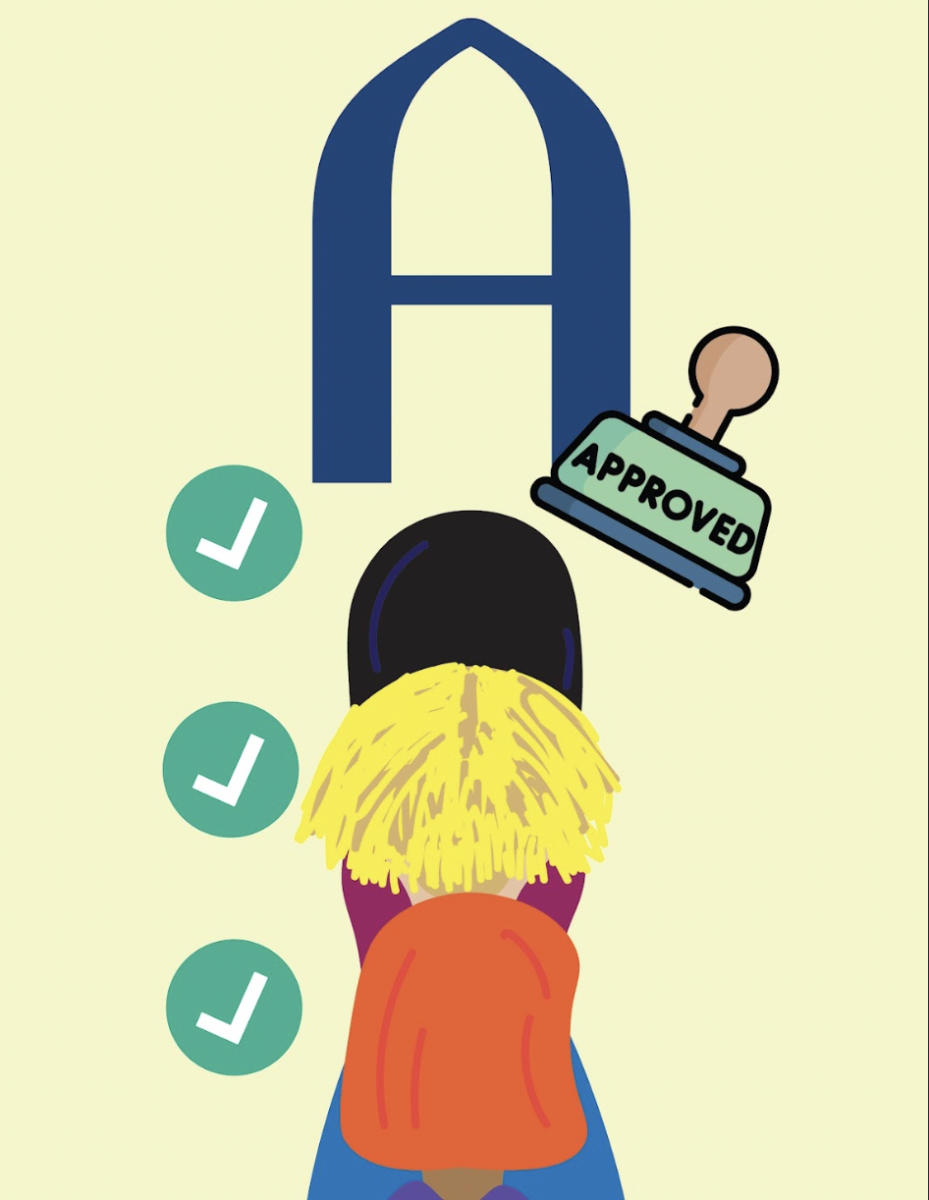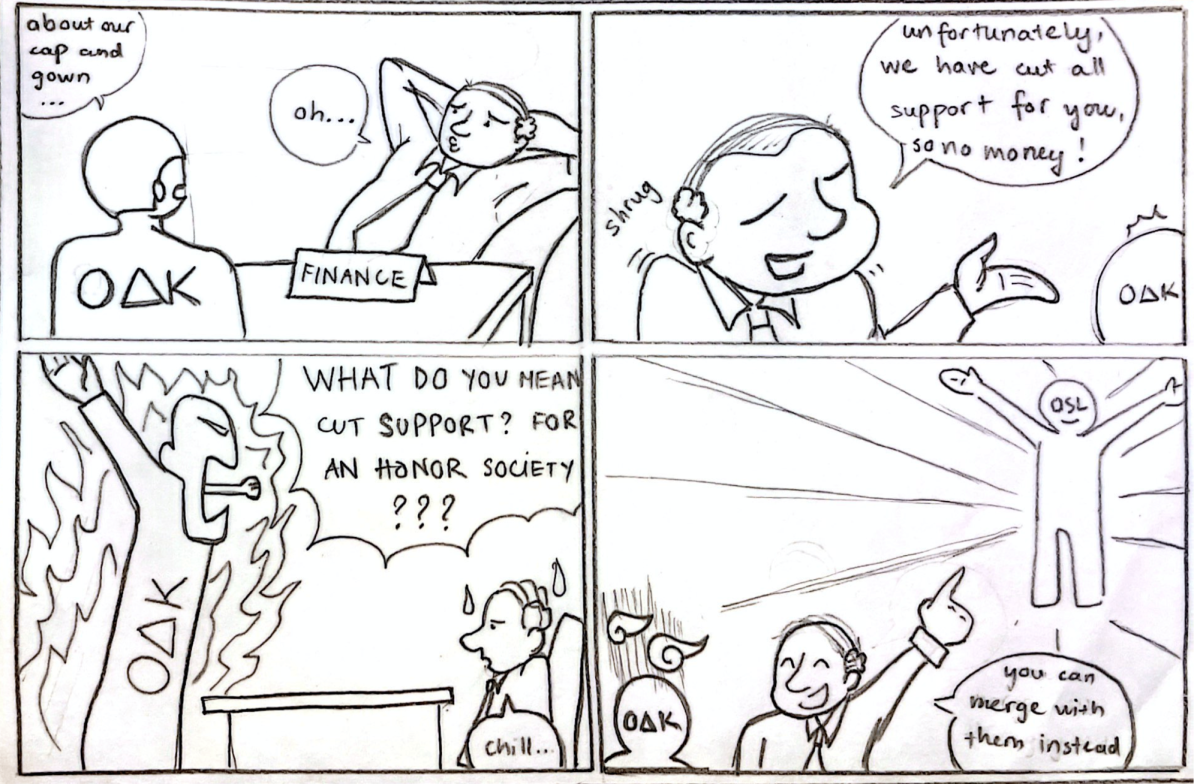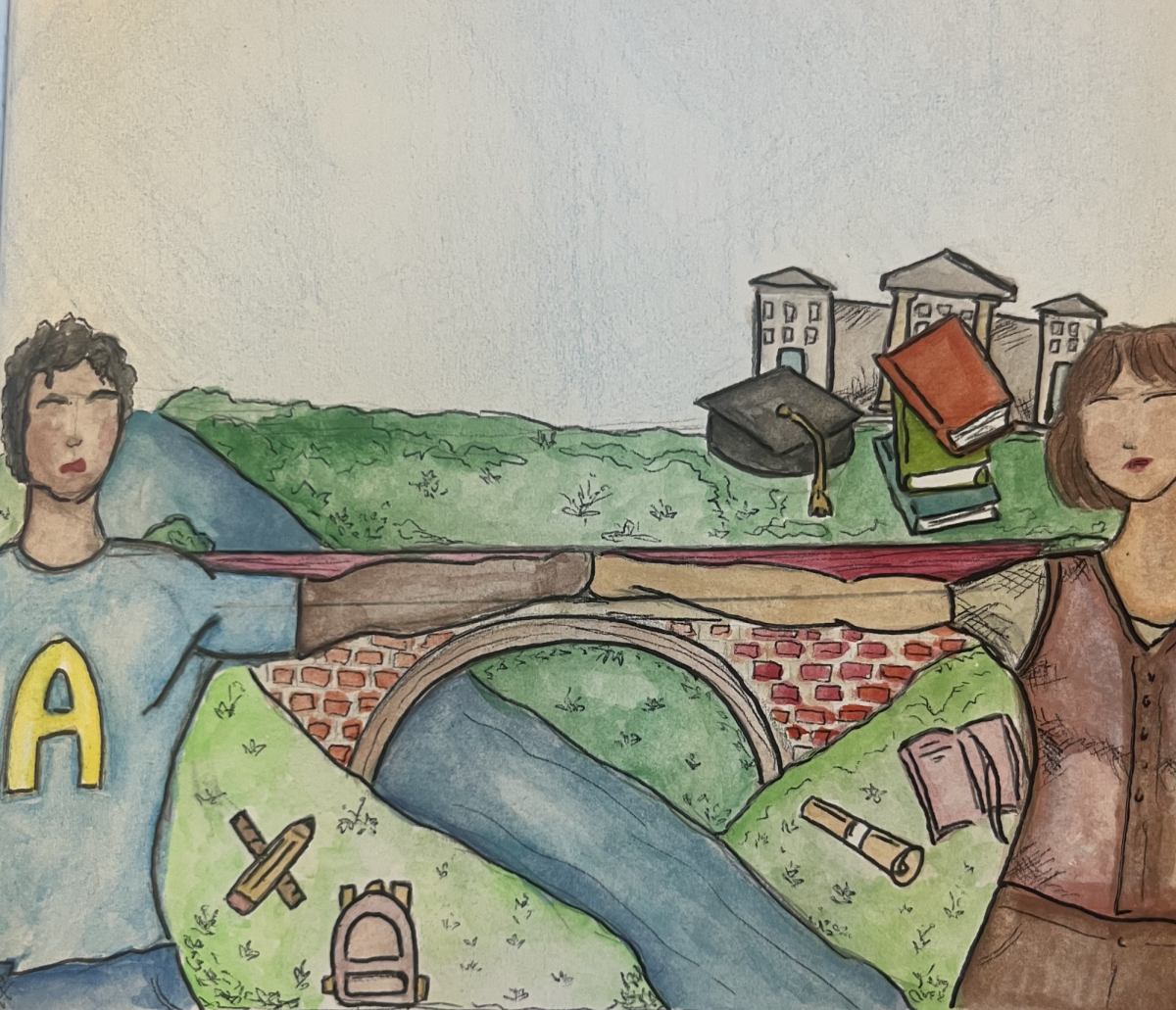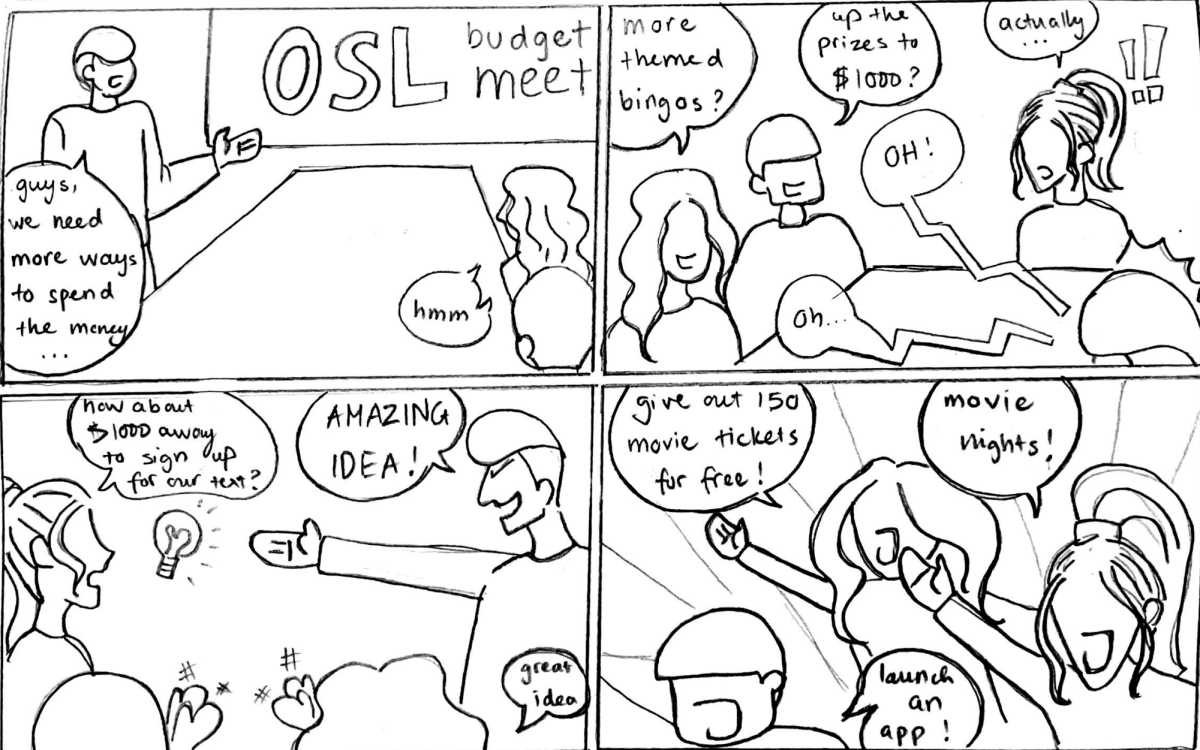[Editor’s note: This article contains content/trigger warnings for discussions of anxiety and depression and their symptoms.]
Anxiety is not a foreign emotion to most college students. A big test approaching, getting an unexpected email from a professor, the looming deadline of tuition or other bills. All these are familiar sources of stress or worry for practically every college student.
Yet for some, that may just be the tip of the iceberg. I tend to think of it a little more grimly. The anxiety I get from these things can sometimes be better described as the beginning of the end.
What it begins is a spiral of anxiety that can impact every aspect of how I go through my day. I struggle with an anxiety disorder that has been impacting my life since I was twelve. Nearly ten years later, it is shaping the way I navigate through college in ways I would never have expected when I was first diagnosed. While I do go to counseling and employ other methods of self care to help me with my disorder, its not always enough. Medications don’t or can’t always help with anxiety disorders, either.
Anxiety disorders are among the most common mental health problems experienced in the United States; according to the Anxiety and Depression Association of America (ADAA), around 40 percent of adults suffer from anxiety disorders. Women are more likely to experience anxiety than men, and 62 percent of college students who drop out due to a mental health concern do so because of anxiety.
General Anxiety Disorder (GAD), is characterized by “an excessive, irrational dread of everyday situations” according to the ADAA.
Often, people with anxiety are not taken seriously. Common dismissals include classic statements like “You’re making that up,” or “I get anxious too sometimes, but I don’t let it stop me!”
Even when being taken seriously, people with anxiety are still frequently admonished to “get over it” or to simply “calm down.” We are reminded that whatever is causing such distress is “not a big deal.”
In a college setting, my anxiety began to manifest itself in new and burdensome ways. Stress over a class often makes me want to avoid it – a classic tactic, and a classic symptom of GAD. But with attendance being so important, especially in a trimester system like at Augustana, missing class or being late because I’m too anxious to get ready for class normally is a problem.
I have to navigate normal classes differently than other people might. Taking Intro to Psych was interesting. Clinical discussion of some mental health disorders can be triggering for me. Being triggered is when something sets off an anxiety or panic attack, or causes intense flashbacks to a specific situation or traumatic event. Luckily, my professor was very understanding and helped me manage classwork in a way that was healthy (thanks, Dr. Stough).
Depression often accompanies anxiety, according to the National Institute of Mental Health. This is a nasty combination, since the two often feed each other. In my experiences with both disorders, my depression encourages me to continue to think in anxious patterns, and act in ways that caters to my anxiety.
The effects of depression compounds my anxiety over how I approach an anxiety-inducing situation. It is very hard to imagine a best-case scenario while trying to overcome thoughts that are both anxious and depressed.
This is one reason why social anxiety is another common form of anxiety, one that has an impact on many students, and certainly on me. Reaching out to friends just to spend time together can be an overwhelming idea. What if I said something that made them mad, and they don’t want to see me? Even when there’s little to suggest that might be true, it’s a thought that’s prevented me from talking to my friends.
Although most people with anxiety are aware that what causes us stress is not as serious as our reaction would make it seem, our physical and emotional reactions are outside of our immediate control.
According to the National Institute of Mental Health, symptoms of anxiety could include shortness of breath, dizziness, rapid heartbeat, sweating, headaches, shaking, panic attacks and nausea. It is not easy to simply “calm down “when my body is acting like that I under immediate threat of attack, regardless of if that threat is real or not.
One of the most helpful things to do for someone with anxiety is to ask them for how best to help them when they need it, and how to recognize when they need it.
That level of courtesy and consideration can be hard to find, even from the people who love someone with anxiety.
As the stress and anxiety of the end of the term draws near, take an extra moment to reach out, calmly, to those who might not be able to do so themselves.
Living with anxiety in college
February 6, 2015








































































































